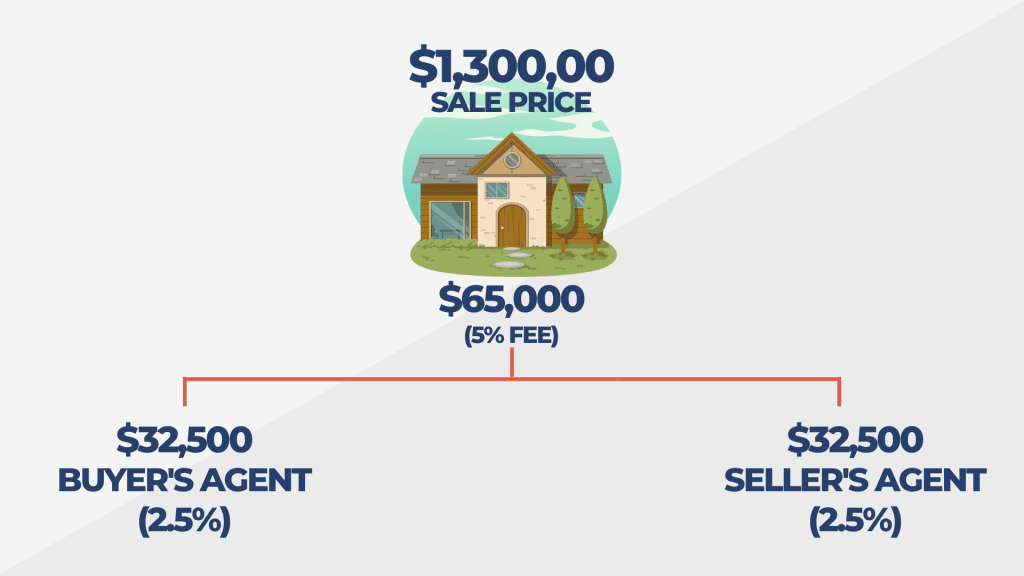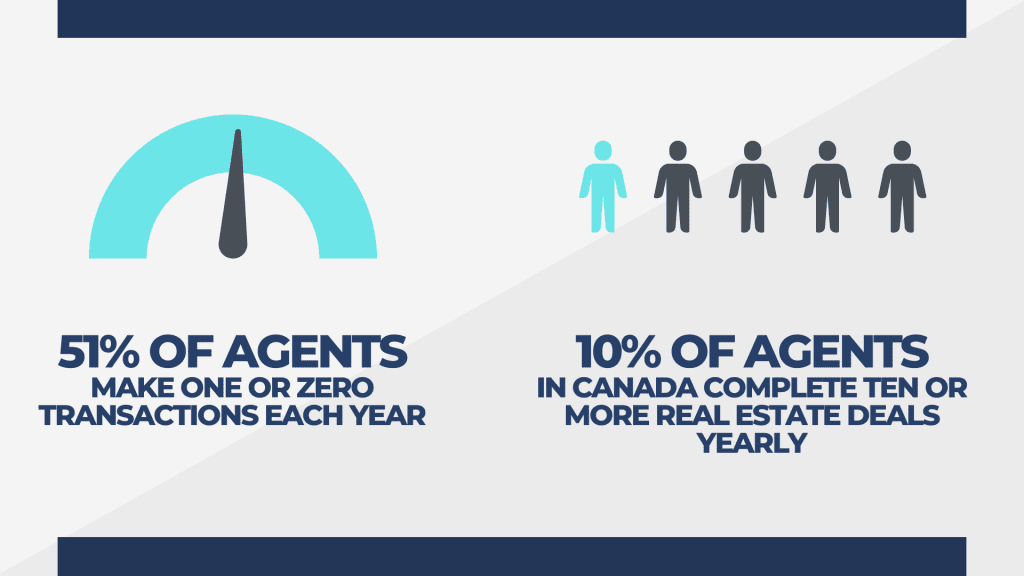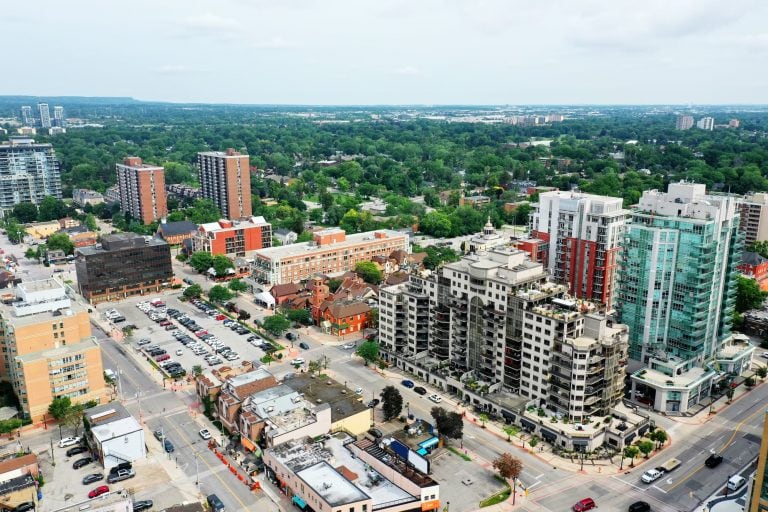Everyone has a right to be fairly compensated for their services to others, and real estate professionals are no exception. In Canada, agents are typically paid on a commission basis, which means the more houses they sell or help buy, the more money they make. If you’re in the Alberta real estate market for a new home, or looking to become a real estate agent in Toronto, then you’ve probably been wondering about real estate commissions. How do they work? Who pays them? And how much do they cost? This article will break down how real estate commissions work in Canada so that you know exactly what to expect.
What Are Real Estate Commissions And How Do They Work?
The fees paid to real estate agents for their services are known as real estate commissions. The commission is commonly calculated as a percentage of the property’s selling price.
In Canada, there’s no standard commission rate. Licensed real estate agents charge commissions that range from 3% to 7% of the final selling price, depending on their location. This entire amount seldom goes to a single real estate agent, though. It’s common for it to be shared by both the seller’s and buyer’s agents, who allocate a portion of their earnings to their respective brokerages.

Real estate commissions are actually taxed in all the Canadian jurisdictions, but the specifics vary per province. The sales tax on real estate commissions in Quebec, for example, is composed of both the provincial and federal taxes at a rate of 9.975%, plus the 5% GST expense.
Types of Real Estate Commissions in Canada
Real estate is a competitive market; therefore, agents’ pricing techniques differ significantly in both kind and amount. The most frequent type of commission in Canada is the fixed percentage of the purchase price, but there are other types. Each agent’s chosen commission type will depend on whether they work for themselves or a large firm. These are common types of commission in Canada:
Fixed Percentage
It happens when the seller pays the agent a fee set at a percentage of the home’s selling price. The percentage rate is the same whether the property is sold for a large or small amount. This motivates the real estate professional to secure the highest selling price since it would result in a larger commission.
Fixed or Flat Fee
The fixed rate is when the real estate agent charges a set fee for their services without regard to the sale value. The fixed or flat fee ensures that the cost is kept low concerning the effort required to sell the home.
Split Percentage
In this payment type, the seller’s profit percentage is often higher in the first tier and lower in the remaining tiers. For example, an agreement may provide the agent a 3% commission on profits up to $1M, with a 2% charge on the rest. The seller almost always comes ahead with split percentage agreements, so this is often used as a marketing tactic.
Fixed Percentage + Flat Fee
This commission is charged on a flat fee and a percentage of the sale. This blend of fees is frequently used in a buyer’s market, where selling a home is harder compared to a seller’s market.
Real Estate Agent Commission Rates Across Canada
The exact commission amount is partly the agent’s decision, but it also depends on the regulations in the region or province where the transaction is taking place. Let’s see how agent’s fees work across provinces:
- Ontario: The basic real estate agent fee is 5% of the property value plus HST, although the commission can range from 3.5% to 5%.
- British Columbia: Agents handling the transaction charge a graduated commission that ranges from 3% to 4% for the first $100,000 of a property’s price and from 1% to 2% for the remaining value.
- Manitoba: The typical real estate commission rates are about 4-5% of the property’s sale price.
- Alberta: The standard combined real estate commission is 7% on the first $100K of a property’s price, and 3% of the remaining balance over $100K.
- New Brunswick: The typical real estate agent commission in New Brunswick is 5%, although the range is 5% to 7%.
- Saskatchewan: In Saskatchewan, the commission is usually calculated in one of two ways: 1) The fee is 6% of the first $100,000 in proceeds, 4% of the second $100,000, and 2% of any remaining amount that is more than $200,000. 2) The total fee is 7% of the first $100,000 of the selling price and 3% of any remaining amount that exceeds this amount.
- Newfoundland and Labrador: The commission in Newfoundland and Labrador is 5% of the selling price of a property, but it can range from 3% to 5%.
- Nova Scotia: The Nova Scotia average real estate agent commission is 5%, although it may be 4% to 6%.
- Prince Edward Island: The typical real estate agent charges 5% commission, but it may vary from 5% to 6%.
- Quebec: The fee in Quebec is generally 5%, although it may range from 3 to 6%.
Who Pays the Real Estate Agent Fees?
In most real estate transactions, the seller and buyer’s agent commissions are paid by the seller, although this sum may be split. The gross commission is usually on the seller’s statement of adjustment at closing and is deducted from the sale proceeds.
If the property doesn’t sell (the contract should specify the length of time the house can be on the market), neither agent will receive a payment. This also applies to the brokerages and independent parties involved in the transaction.
If you are the homebuyer in that scenario, be sure to speak with your real estate agent about the commission prior to signing any agreement and making an offer on a property. On the contrary, if you are the seller, check the duration of time your property can be listed to see when your contractual obligations come to an end.
Do Realtors Make A Lot Of Money In Canada?
Ultimately the answer to this question will depend on each agent’s skills, experience, reputation, and sales performance. It is also essential to consider that many agents only work part-time or participate in real estate transactions as a side-hustle.
Canada has over 135,000 real estate agents, and according to the Canadian Real Estate Association (CREA), they were involved in the bought and sold process of approximately 680,000 residential properties in 2021 only.
Having that number of sold properties in mind, and considering that every real estate deal (normally) involves two agents, we can conclude that the typical Canadian real estate agent would have over ten houses sold or purchased each year.
If we take into account that the national average home price in 2021 ended up being $748,450 and that the average commission in Canada is 5%, the annual commission salary per agent could be calculated as $180,000+.

That being said, it is not easy for the average real estate agent to make over $100K a year. According to the Government of Canada’s Job Bank wage survey cited by Wowa, real estate agents in Canada generally make between $24,173 and $134,783 per year, with the median salary being $46,212.
It is also important to consider the expenses an agent typically faces to keep their business running. After they receive their commission, they have to dedicate between 10%-20% to brokerage transaction fees. Another 20% to 30% goes to operational costs. That includes car expenses, insurance, gas and parking, office supplies, and continued education, among other necessities.
Negotiation Of Real Estate Commissions
Many sellers are unaware that commissions are negotiable. You should talk to each agent you meet about their commissions and if they’re willing to be flexible. Not all agents will be inclined to negotiation, but it is worth trying. Any reduction in the commission fee (even if it’s a 1%) can save you a good deal of cash.
How Do Real Estate Commissions Work In Canada?
Real estate commissions are a significant part of the real estate industry in Canada. They ensure that agents are fairly compensated for their services and help keep the industry running smoothly. If you’re interested in buying or selling a home in Toronto or any other Canadian city, it’s important to understand how commissions work, and we hope you found this article useful in that regard. If you have additional questions, reach out directly to a real estate agent in your area. They will address all your concerns and help you make the best decision.













